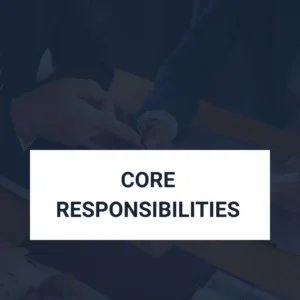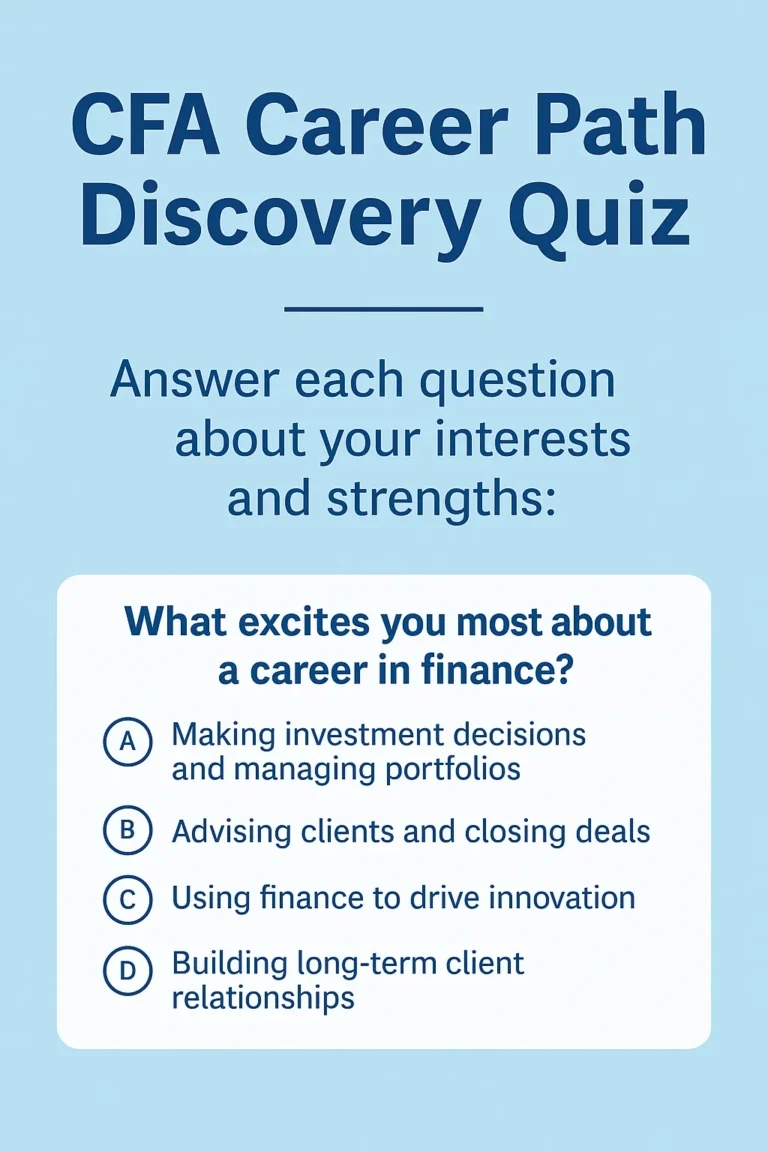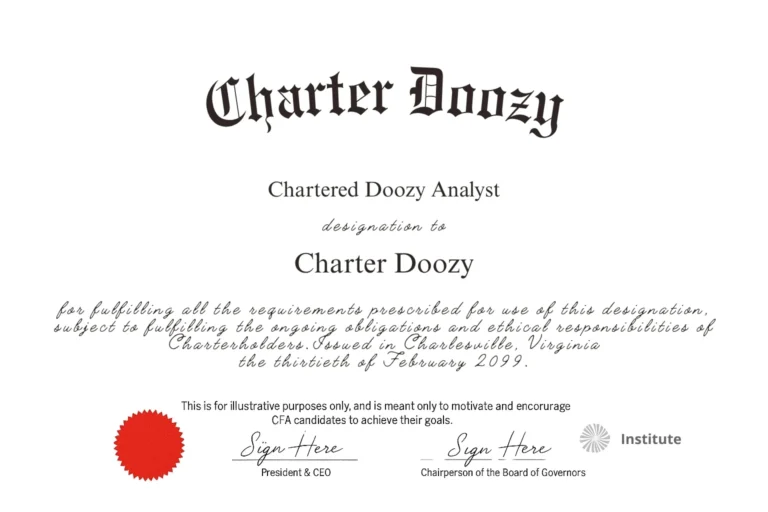Wealth management and financial planning focus on helping individuals and families make smarter decisions about their money. It’s a people-first profession. Built on trust, communication, and long-term guidance.
As a wealth manager or financial planner, you don’t just manage investments. You help clients set goals, plan for retirement, navigate taxes, protect their assets, and provide for future generations. It’s a career that blends finance with real-life impact.
For CFA candidates who enjoy working closely with people and want to apply investment knowledge in a practical, personal context, this career path offers both meaning and opportunity.
In this article, we’ll explore what the role involves, how the CFA curriculum supports it, and how to know if it’s the right fit for you.

What Is Wealth Management and Financial Planning?
Wealth management and financial planning revolve around helping clients make informed, confident decisions about their financial future.
These professionals act as trusted advisors, offering tailored guidance across a wide range of personal finance topics.

Core Responsibilities
Wealth managers and planners typically assist clients with:
Investment strategy and portfolio construction
Retirement planning and goal setting
Tax-efficient investing
Estate planning and wealth transfer
Risk management and insurance
Cash flow analysis and budgeting
Education and healthcare planning
The role blends technical knowledge with emotional intelligence. Clients don’t just want market insights.
They want reassurance, perspective, and a steady hand through life’s uncertainties.
Types of Services
Financial Planning
This is the foundation: building a long-term financial plan based on a client’s goals, resources, and risk tolerance.
Planners often work with clients over decades, adjusting strategies as circumstances change.
Wealth Management
This typically refers to more comprehensive services for high-net-worth individuals.
It includes investment management, trust services, estate planning, tax strategy, and sometimes business succession planning.
In both cases, the work is relationship-driven.
Success comes from earning trust, understanding priorities, and providing clear, personalized advice that helps people make smart choices over time.
Doozy Digest
A newsletter for CFA candidates
Subscribe for:
✔ Insightful tips
✔ Expert advice
✔ Career motivation
✔ Exam inspiration
Stay updated and subscribe today!

Why CFA Candidates Are a Good Fit
CFA candidates bring a strong foundation of investment knowledge, ethical grounding, and analytical skill – all of which are highly valued in wealth management and financial planning.
But beyond technical ability, the CFA mindset aligns with what this field demands: discipline, integrity, and a long-term perspective.
Curriculum Alignment
Several sections of the CFA curriculum are directly applicable to advisory work:
Portfolio Management
This is central to the CFA Program and a core component of wealth management.
Topics like asset allocation, risk profiling, diversification, rebalancing, and investment policy statements (IPS) are directly relevant to client portfolios.
Ethical and Professional Standards
Trust is the foundation of client relationships.
The CFA Institute Code of Ethics and Standards of Professional Conduct train candidates to act with integrity, transparency, and client-first thinking… exactly what clients expect from a financial advisor.
Wealth Planning Topics (Level III)
Level III places greater emphasis on private wealth management.
This includes tax considerations, estate planning, concentrated positions, liquidity events, and behavioral finance… all highly relevant to advising individuals and families.
Fixed Income, Equities, and Alternative Investments
Advisors must construct portfolios that include a mix of traditional and non-traditional assets.
The CFA curriculum covers the pros and cons of each, preparing candidates to assess suitability and performance over time.
The CFA Advantage
While many in this space pursue the Certified Financial Planner (CFP) designation, the CFA credential is increasingly recognized—particularly in firms that offer discretionary investment management or work with high-net-worth clients.
CFA candidates who combine technical depth with strong interpersonal skills often thrive in this space.
They can confidently navigate complex market conditions while building trust and delivering advice in a clear, reassuring way.

Skills and Traits That Help You Succeed
Wealth management is about building portfolios.
It’s also about building relationships.
Success in this field comes from combining financial expertise with the ability to connect with people and guide them through life’s financial decisions.
Interpersonal and Emotional Intelligence
Clients want more than just good returns.
They want a trusted guide.
Advisors must listen actively, show empathy, and communicate in a way that builds confidence.
You’ll often act as a financial coach, helping clients stay calm during market swings or make tough decisions during personal transitions.
Trustworthiness and Integrity
Wealth managers are entrusted with sensitive personal and financial information. Integrity isn’t optional.
It’s essential.
Advisors must act in the best interest of clients at all times, especially when conflicts of interest arise.
Communication Skills
You’ll explain complex financial strategies in simple, relatable terms.
This includes translating investment concepts, tax implications, or estate planning strategies into practical, real-life actions clients can understand and follow.
Problem-Solving
Each client’s situation is unique.
Advisors must be creative, analytical thinkers who can assess a person’s full financial picture and design personalized strategies to meet their goals.
Technical Competency
While not all clients ask about Sharpe ratios or fixed income duration, advisors still need a solid grasp of portfolio theory, market mechanics, and financial planning principles. CFA candidates often bring this strength.
Patience and Long-Term Thinking
This isn’t a transactional business – it’s built over time.
Great advisors understand that trust, loyalty, and referrals grow from consistent service and long-term commitment, not quick wins.
If you’re someone who enjoys finance but also finds meaning in personal connection and service, this path can be especially fulfilling.

Typical Career Progression
Wealth management offers a clear and often flexible career path.
It allows professionals to grow from technical support roles into client-facing advisors – and eventually, into business leaders or independent practitioners.
Entry-Level Roles
Analyst / Associate Advisor
Most start in a support role.
You’ll assist senior advisors by preparing financial plans, running portfolio analytics, updating client files, and handling administrative tasks.
This is a chance to learn the tools, understand client workflows, and build your technical base.
Client Service Associate
In some firms, entry-level staff focus on operations – coordinating paperwork, maintaining accounts, and helping deliver a smooth client experience.
While not investment-heavy, this role can lead to advisory opportunities.
Mid-Level Roles
Financial Advisor / Wealth Advisor
You begin managing your own client relationships.
You’ll build financial plans, lead meetings, and oversee investment strategies.
At this stage, you’re expected to generate referrals, deepen client relationships, and show judgment and maturity.
Some advisors specialize – focusing on retirement planning, tax strategy, or cross-border wealth.
Others begin developing niche practices (e.g., physicians, business owners, tech executives).
Lead Advisor / Senior Advisor
With experience, you’ll take ownership of more complex clients and high-net-worth families.
You may manage a team, oversee discretionary investment decisions, or develop firm-wide planning processes.
Senior Leadership Roles
Partner / Principal
In independent firms, advisors may become equity partners—sharing in the growth of the business.
Others may launch their own registered investment advisory (RIA) firms or boutique practices.
Wealth Management Executive
At banks or larger institutions, advisors can rise to management roles, overseeing teams of advisors or leading regional strategy.
This career path allows you to choose how far you want to grow.
Some focus on deep client work, while others build teams or businesses.
The progression is both professional and personal.

Where You’ll Work
Wealth management professionals operate in a wide variety of firms – each with its own client base, service model, and culture.
Where you work can shape your day-to-day responsibilities and long-term growth opportunities.
Private Banks
Large financial institutions like JPMorgan, Goldman Sachs, and UBS offer private banking services to high-net-worth and ultra-high-net-worth individuals.
Advisors here manage large portfolios and often work as part of a team that includes investment specialists, tax advisors, and trust officers.
These environments offer prestige, scale, and access to in-house products and research.
But may come with more structured processes and sales expectations.
Registered Investment Advisors (RIAs)
Independent RIAs are among the fastest-growing segments in wealth management.
These firms range from small boutiques to billion-dollar platforms.
They emphasize fiduciary duty, customized planning, and transparency.
RIAs often provide more autonomy, flexible fee structures, and a planning-first approach.
Many CFA Charterholders thrive in this environment, especially those who want to offer objective advice without product quotas.
Wirehouses and Broker-Dealers
Firms like Merrill Lynch, Morgan Stanley, Edward Jones, and LPL offer both advisory and transactional services.
Advisors may earn through commissions, asset-based fees, or a mix.
These firms often provide strong training programs and large client networks, but the culture can be more sales-driven.
Still, many successful advisors build long, rewarding careers here.
Family Offices
These serve ultra-wealthy families with highly customized financial, legal, and administrative services.
Roles are multi-disciplinary and hands-on.
You may help manage investments, coordinate estate planning, or handle philanthropic giving.
Family office roles suit advisors who value privacy, discretion, and long-term relationship management.
Fintech Platforms and Robo-Advisors
Newer entrants like Betterment, Wealthfront, or hybrid platforms at Schwab and Vanguard combine technology with human advice.
Roles here may be less client-facing and more focused on financial planning operations, investment algorithms, or customer experience.
These environments are ideal for advisors who are tech-savvy and interested in scaling advice through digital channels.
Wherever you work, your success will depend on your ability to connect with clients, communicate clearly, and deliver consistent value over time.

Compensation and Lifestyle
Wealth management offers solid earning potential (especially over the long term) as well as a lifestyle that can be more flexible and sustainable than other finance paths.
Your income and hours will vary based on your firm type, client base, and how your practice is structured.
How Advisors Earn
Compensation in wealth management typically comes from one or more of the following:
Base salary (common in banks and large firms for junior roles)
Incentive bonuses tied to performance or business development
Asset-based fees (usually a percentage of assets under management, or AUM)
Commissions (on certain products, less common in fiduciary RIAs)
Equity ownership (if you’re a partner or firm founder)
As you grow your client base and retain assets, your compensation becomes more recurring and scalable.
Typical Compensation Range
Entry-level analyst or associate: $50,000 to $90,000 base salary, plus bonus
Early-career advisor (3–5 years): $80,000 to $150,000 total compensation
Established advisor (5–10+ years): $150,000 to $500,000+, especially if managing $100M+ in AUM
Partner / firm owner: $500,000+ with significant upside tied to firm growth and equity
Top-performing wealth managers (particularly those who run independent practices) can earn well into seven figures.
Lifestyle Considerations
Compared to investment banking or trading, wealth management typically offers:
More regular hours: Client meetings usually take place during business hours. Late nights are rare, and weekends are generally off.
Flexibility: Many advisors set their own schedules, and remote or hybrid work is increasingly common.
Stability: Client relationships tend to be long term, and business tends to be more resilient in market downturns.
Responsibility: While the work is not high-pressure in the same way as trading or deal-making, you’re responsible for people’s financial futures—and that trust comes with its own weight.
If you’re looking for strong earnings potential without sacrificing work-life balance, this career path is worth considering.

Advantages of This Career Path
Wealth management and financial planning offer a rare blend of financial expertise, personal impact, and long-term career sustainability.
For many CFA candidates, this path delivers a sense of purpose that’s hard to find elsewhere in finance.
Deep, Long-Term Client Relationships
Unlike transactional roles, wealth management is built on trust and continuity.
You’ll work with clients for years (sometimes decades) helping them navigate life’s major financial decisions.
You’re not just managing money.
You’re guiding lives.
Purpose-Driven Work
Helping someone retire with confidence, fund a child’s education, or preserve a family legacy is deeply rewarding.
The emotional value of the work (especially when markets are turbulent) can be just as powerful as the financial results.
Autonomy and Flexibility
As you build experience, you’ll have more control over your client base, your working style, and your career direction.
Many advisors choose to go independent, scale their own practice, or specialize in a niche that aligns with their interests.
Recurring Revenue Model
Once you build a loyal book of clients, income becomes more predictable and scalable.
Unlike one-time deals, AUM-based fees provide stability and allow you to grow by adding new clients over time.
Work-Life Balance
Advisory work tends to offer better hours than many other finance roles.
While client needs can be urgent, the pace is usually manageable… and many advisors enjoy a high degree of schedule flexibility.
Alignment with CFA Values
Wealth management is one of the few fields where the CFA’s emphasis on ethics, fiduciary duty, and long-term thinking directly reflects the day-to-day responsibilities.
It’s a natural fit for Charterholders who want to put those principles into practice.
If you want a finance career with meaningful relationships, a sustainable lifestyle, and the chance to make a real difference.
This path checks every box.

Drawbacks to Consider
While wealth management has many upsides, it’s not without its challenges.
Like any career path, it comes with trade-offs… some of which can catch new professionals by surprise.
Building a Client Base Takes Time
Early in your career, you may need to bring in your own clients… especially at independent firms or broker-dealers.
Prospecting isn’t easy, and it can take years to build enough relationships to create sustainable income.
If you’re not comfortable with sales or networking, this part of the job may feel uncomfortable or overwhelming at first.
Trust Is Earned Slowly
Clients don’t hand over their life savings lightly.
Building trust takes patience, consistency, and emotional intelligence.
It’s a slow process, and success depends more on credibility and presence than raw financial skill.
Emotional Demands
You’ll work with people during major life events – divorce, death, business failure, retirement.
Being an advisor means being a steady presence during some of your clients’ most stressful moments.
The emotional toll can be significant, especially over a long career.
Regulatory and Compliance Pressure
Wealth managers operate in a heavily regulated environment. From know-your-client (KYC) rules to fiduciary standards and ongoing disclosure obligations, there’s a lot to track.
Mistakes can carry legal or reputational consequences.
Market Volatility and Client Anxiety
Even when you’ve done everything right, market downturns can test client confidence.
You’ll need to manage expectations, reframe uncertainty, and reinforce long-term plans – even when emotions run high.
Potential Earnings Gap Early On
Compared to investment banking or consulting, early-career earnings in wealth management can be modest.
Compensation typically grows as your AUM and client base grow, but the ramp-up takes time.
This path rewards patience and long-term thinking.
If you’re in it for quick wins or rapid financial success, you may find the pace frustrating.

How to Break In
Wealth management is accessible, but competitive.
Firms aren’t just looking for financial knowledge.
They’re looking for people who can build trust, communicate clearly, and grow lasting relationships.
The good news?
There are multiple entry points – and plenty of ways to stand out.
Start in a Support Role
Many advisors begin their careers as analysts, associate planners, or client service specialists.
These roles involve research, financial plan preparation, operations, and support in client meetings.
They’re a great way to learn the business and observe seasoned advisors in action.
Look for internships or entry-level roles at:
Private banks
RIAs (Registered Investment Advisors)
Wirehouses or broker-dealers
Insurance-affiliated advisory firms
Fintech wealth platforms
Earn Relevant Credentials
The CFA designation is highly respected in this space,… especially for investment-focused advisors.
But for planning-heavy roles, consider also pursuing the Certified Financial Planner (CFP) designation.
Many successful advisors hold both.
The CFA curriculum supports wealth work especially well at Level III, which includes:
Behavioral finance
Tax and estate planning
Investment policy statements (IPS)
Portfolio construction for private clients
Liquidity management and time horizon analysis
Highlight these overlaps when applying.
Practice Talking About Money
Advisory work is personal. Clients want more than data – they want perspective and reassurance.
Practice explaining concepts in plain language.
Try helping a friend or relative with their financial goals, or simulate a client meeting with a mentor.
Build Your Network
Relationships matter here.
Just like they do with clients.
Join your local CFA Society, attend industry events, and reach out to advisors for informational interviews.
Ask how they got started, what they enjoy, and what they’d do differently.
You can also connect with planners through:
The Financial Planning Association (FPA)
The CFP Board
NAPFA (fee-only planner network)
Show Initiative
Hiring managers notice candidates who take initiative.
Try:
Writing a mock financial plan or investment strategy
Posting personal finance insights on LinkedIn
Creating a simple newsletter or blog focused on planning
Completing a planning case study online
If you can show that you understand both the technical side and the human side of advising, you’ll stand out… even without direct experience.

Resources and Next Steps
If you’re considering a career in wealth management or financial planning, there are plenty of resources to help you learn more and start building momentum.
This field rewards curiosity, preparation, and consistency.
So take a few small steps, and keep going.
Books
The Million-Dollar Financial Services Practice by David J. Mullen Jr. – Insights into growing a successful advisory business
The New Wealth Management by Harold Evensky – Covers investment planning and client relationships
The Behavior Gap by Carl Richards – Focuses on behavioral finance and simple communication
Let’s Talk Money by Monika Halan – A client-centered approach to personal finance (especially for non-U.S. markets)
Online Platforms
Kitces.com – Deep-dive articles on the business and strategy of financial planning
Investopedia – Basics on retirement, insurance, taxes, and estate planning
XY Planning Network – Great for fee-only planners and those exploring independent paths
CFP Board – Learn about the CFP certification and planner directory
CFA Institute – Explore private wealth resources and curriculum ties
Podcasts
The Financial Advisor Success Podcast by Michael Kitces
Animal Spirits by Michael Batnick and Ben Carlson
The Long View by Morningstar
Practical Steps to Take Now
Review the Level III CFA curriculum, especially the private wealth sections
Try writing a one-page retirement plan for a hypothetical client
Reach out to a local advisor or planner and ask for a 15-minute informational call
Look for internships at local firms—even if small or part-time
Take the CFA Career Path Discovery Quiz (next section) to confirm your fit
This is a people business.
Start with one conversation, one idea, one client case study.
Over time, your skills and confidence will compound.
Just like a well-managed portfolio.
Take the CFA Career Path Discovery Quiz
Still deciding if investment banking is right for you?
The CFA Career Path Discovery Quiz is a quick, insight-driven tool that matches your personality, preferences, and strengths with eight finance career paths. Based on your answers, you’ll receive a breakdown of where you best fit—whether that’s investment banking, portfolio management, fintech, or something else entirely.
It’s a simple way to step back, reflect, and explore paths that align with your goals.
Final Thoughts
Wealth management and financial planning offer something rare in the finance world.
A career that’s both intellectually engaging and personally meaningful.
You don’t just manage portfolios.
You help people make life decisions with clarity, confidence, and care.
For CFA candidates who value long-term thinking, ethical responsibility, and relationship-building, this path offers a natural fit.
It allows you to apply your financial knowledge in real ways, while building a career with flexibility, stability, and human connection.
If you’re drawn to the idea of combining finance with impact, this may be the role you’ve been looking for.



